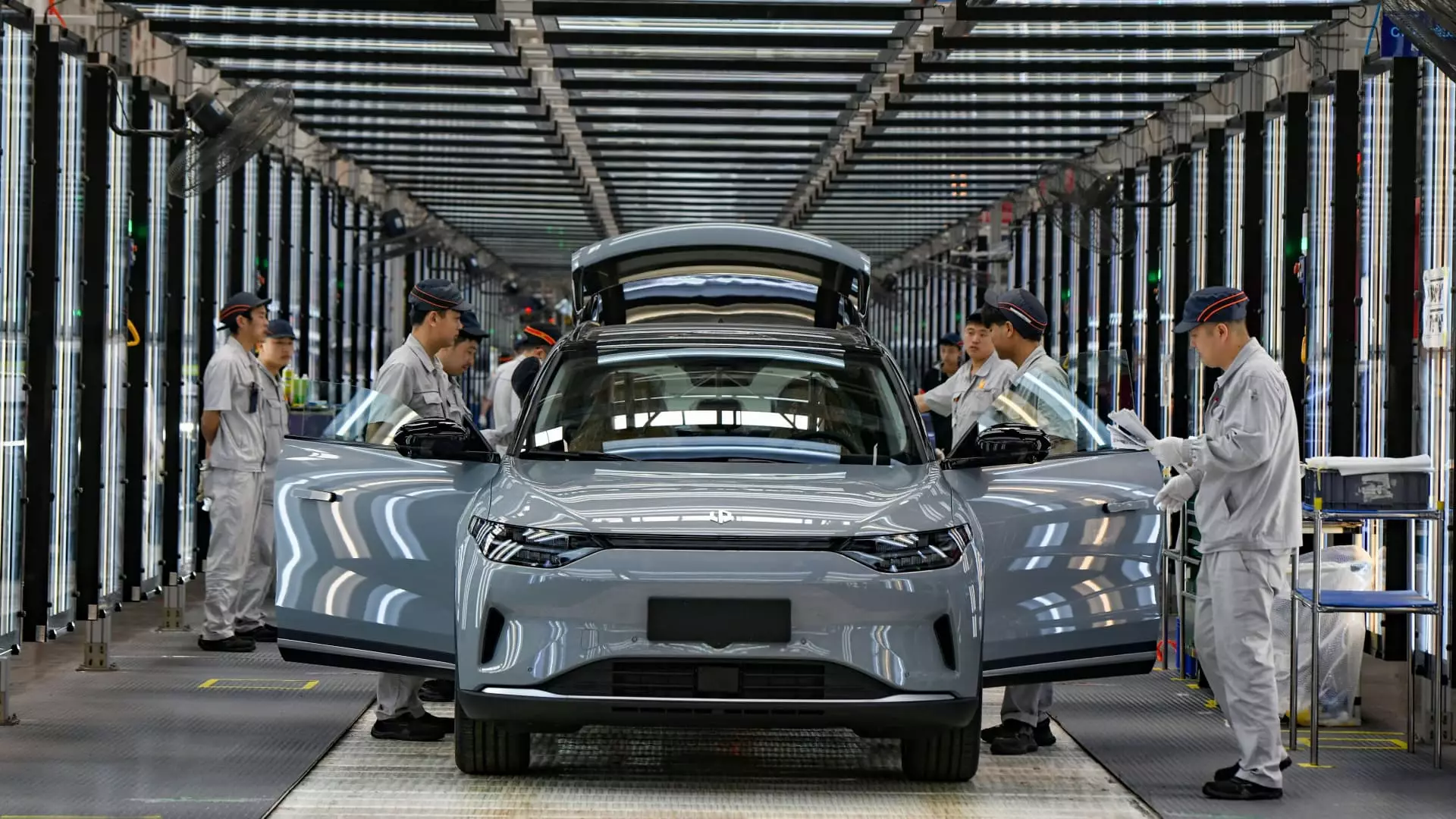Recent developments in international trade policies, specifically the imposition of tariffs by the United States on Mexico, Canada, and China, have sent shockwaves throughout the global automotive sector. President Donald Trump’s executive orders—announced over the weekend—enforced a 25% tariff on select goods from Mexico and Canada, alongside a 10% levy on Canadian energy products and various Chinese imports. These measures, scheduled to take effect imminently, have raised alarms among automotive manufacturers and investors alike, highlighting the precarious nature of trade relations and their implications for the sector.
In the wake of Trump’s tariff announcements, shares of major automobile manufacturers have experienced significant declines. The automotive industry, heavily reliant on cross-border supply chains, is especially vulnerable to such trade barriers. During U.S. pre-market trading, General Motors saw a decrease of 6.6%, while Ford’s shares fell over 4%. European automotive players were not spared; for instance, Valeo and Stellantis experienced drops of 7.8% and 6%, respectively. This trend continued across Asia, where Japanese automotive giants Toyota and Nissan each fell by over 5%. The sudden downturn in share prices indicates investor anxiety surrounding a possible trade conflict, questioning the long-term viability of companies whose operations are deeply entwined with these affected markets.
Analysts are predicting that these tariffs could have far-reaching ramifications for the global automotive industry. The manufacturing operations in North America, particularly in Mexico—where labor costs are lower—play a pivotal role in the production processes of many automakers. The newly instituted tariffs could disrupt these operations, leading to increased production costs and ultimately higher prices for consumers.
While President Trump has justified these tariffs as necessary measures to combat issues related to illegal immigration and drug trafficking, the economic consequences cannot be overlooked. These tariffs may lead to a retaliatory response from both Canada and Mexico, which have threatened to impose their own countermeasures. This cyclical tit-for-tat could escalate into a full-blown trade war, further destabilizing an already fragile industry.
European car manufacturers, too, find themselves bracing for potential fallout from the U.S. tariffs. The evolving narrative suggests that the European Union may soon face similar trade barriers, heightening concerns regarding the free flow of automobiles between the two markets. Automobile exports from the EU to the U.S. have long been a foundational element of the European automotive industry’s prosperity, and increased tariffs could render European cars significantly more expensive to American consumers.
For Germany—home to renowned automotive brands like Volkswagen, Mercedes-Benz, and BMW—the stakes are particularly high. These manufacturers have already issued profit warnings due to sluggish demand in critical markets, notably China. In light of the new tariffs, companies are evaluating their operational strategies to mitigate potential negative outcomes. A Volkswagen representative recently stated that the firm is assessing the implications of the tariffs not only for its own operations but also for the broader industry landscape.
As industry leaders grapple with this impending crisis, the call for open markets and stable trade relations grows louder. Advocates of free trade emphasize that tariffs threaten to stifle innovation and economic growth. A BMW spokesperson pointed out that free trade is vital in fostering an environment conducive to expansion and development. Conversely, imposing tariffs could thwart progress, leading to a damaging spiral of economic repercussions for all parties involved.
The recently imposed tariffs signal a precarious juncture for the international automotive industry. As manufacturers assess the short- and long-term impacts of these trade wars, the calls for dialogue and negotiation become increasingly pertinent. Open communication channels between trade partners will be crucial to navigating this turbulent time and ensuring economic stability in the automotive sector and beyond. The road ahead may be fraught with challenges, but the pursuit of mutually beneficial agreements will be essential in steering clear of a detrimental trade conflict.

Leave a Reply